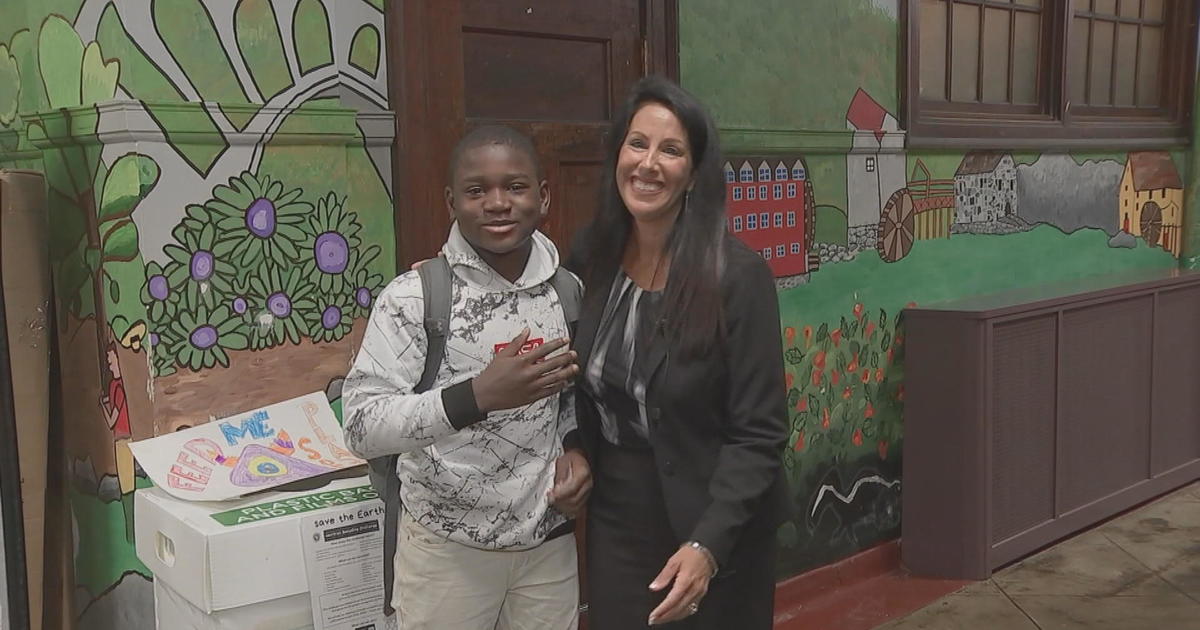The Parent's Guide To Raising A Happy Child
Another school year is looming, bringing with it studying, homework, new friends, and an onslaught of after-school activities—not to mention some whining from the kids. And aside from internally rejoicing, many parents may be wondering just how they can stay involved in their children's lives and keep them happy and protected, without being overbearing.
Teressa Moore Griffin, author of LIES that Limit: Uncover the Truth of Who You Really Are and expert in personal growth, shared her tips for interacting positively with your kids and making sure they are safe and happy this school year:
1. Recognize the difference between "I can't" and "I won't."
While most of us CAN do things, we may choose NOT to dedicate the energy and commitment it requires to do them, and children are no different. Confront statements of "I can't"—often an indicator of frustration, fear of failure or embarrassment. Look your child in the eye and say, "I love you and I care about what you have to say," then practice gentle, respectful probing to distinguish between "I can't," meaning they don't have the ability or know how, and "I won't," meaning they don't want to or don't like doing something. If your child is really saying, "I won't," offer support to increase their motivation, perhaps a tutor, an incentive like a toy, or a privilege bestowed (like relief from chores). However, be careful not to create an expectation of rewards!
2. Don't let your own fears and limitations get in the way of your child's accomplishments.
Though your job as a parent is to keep your child safe, you should ask yourself whether your fear of a certain situation is a real worry about their safety and success or an over-protective neurosis. If you're afraid, say so, and be explicit: "I'm afraid you'll get hurt." Or, "I'm worried your grades will suffer." Share your fears in the interest of open, loving communication—not to dissuade or discourage.
Remember, your child may fall and get hurt while playing sports—as in other areas of life. But like adults, children learn through experience. If it hurts too much, they probably won't continue. But if they love it, it's you who has to suck it up. Cheer your child on if the activity is something they're passionate about.
3. Be part of your child's experiences rather than trying to control them.
When your child wants to do something that you never would have considered, stay calm and get all of the details. Find out why your child wants to do the activity—what interests them about it, how they got attracted to the idea, who else is involved, etc.
Talk with school or team officials to get information on the activity's coordinator and safety record as well as any other issues you're worried about. Share your concerns with your child and let them respond. If they're still interested, make a deal. For example, tell them they can participate, so long as their grades don't fall, or they don't get seriously hurt.
4. Don't be satisfied with one-word answers when you ask them about their day.
Start this routine before you send them off to school, as your conversation in the morning can set the stage for one later that day. For instance, "What are you going to do to have a good day in Mrs. Wood's class today?" Get your child to make a declaration of what they will do that day, so that in the evening, you can say, "Tell me how your plan went. How did it go in Mrs. Wood's class? What did you do? What did she say?"
Asking a general question like, "How was your day?" invites a one-word answer. Instead, ask open-ended questions that require more than a yes or no answer. For example, "Tell me two things you learned today." Or, "What did the coach have you work on in practice? Show me."
Also, keep in mind your child's personality. If your child is an extrovert, they are probably energized by speaking to you and other people. Most extraverts need to decompress immediately by talking to others, so if your child comes home and wants to unload about their day, ask them questions when they walk in the door.
However, if your child has a tendency to enjoy quiet, alone time or one-on-one activities, they are likely an introvert. Give them some space and allow them to settle in at home before you begin to ask questions about their day. Introverted children may find it easier to talk about themselves once they have the time to recharge their social batteries.
And for both introverts and extroverts, the kitchen can be a good space to spark up a casual conversation because it's a place where adults are involved in activities like making dinner or cleaning up. Your child still has your attention, but you're not targeting them with an intense focus.
5. Encourage your child to experiment and experience.
Encourage your child to try new things; it's critical to their learning, development and life education. Don't limit your child based on stereotypes and labels about boys v. girls, rich v. poor, race or ethnicity, or your own ideas of what's best for them. These notions are rooted in beliefs that limit their options and short-change their potential for happiness and success.
Though your child's ambitions and dreams may be far removed from anything you would have chosen or wanted for them, it is your job as a parent to support them. As long as what your child wants to do is positive and doesn't harm anyone else, encourage them to go for it. If he wants to take ballet, let him. If she wants to try out for the football team, let her. Encourage your children's natural gifts and talents and watch them flourish into happy, well-adjusted adults.
And how does Moore Griffin think parents should manage the internet, technology and social media, especially since children often know more about social networking and mobile applications than their parents?
First, Moore Griffin stresses that it is critical to talk about the consequences of online behavior with your children, since what they do or post today could open them up to real, immediate danger or follow them for the rest of their lives. She suggests educating yourself and then setting some ground rules. For example, the age requirement to have a Facebook page is 13, and although the social network can't stop kids from lying about their age, parents can and should still enforce those limits.
Moore Griffin is also emphatic about paying close attention to whatever your child is involved in online. She says you should let them know that they can have their privacy, but you reserve the right to review their activity at any time.
For more information on online safety, Moore Griffin recommends www.parenting.com or the Family Online Safety Institute's website and says software like "Net Nanny" will allow you to block certain sites and see what your child is looking at online. "Mobile Watchdog" does the same thing for smart phone activity.
And what should you do if you see a change in your child's behavior or suspect they are being bullied, online or in person?
Moore Griffin says you need to ask questions. For instance, "You're quiet today. What's up?" Or, "I haven't seen John lately. What's going on with him?" Taking the focus off your child and putting it on a friend makes it easier for children to open up about themselves, and you can gain insight into what's going on. Realistically, you may get an impatient, "Nothing," but that's when she says you should explain why you're asking. "I just noticed…" "I know things can change between friends, so that's why I was wondering." You will probably have to gently and strategically approach the topic a number of times.
Finally, Moore Griffin recommends making a promise to yourself to engage—but not preach to—your children this year. She stresses that children need love, support and guidance from their parents. Set boundaries, talk to your child about the consequences of their actions and encourage them to be in control of their choices, and you'll be on your way to raising a happy, successful adult.
For more information about Teressa Moore Griffin, visit her website.
Reported by Chelsea Karnash, CBS Philly



